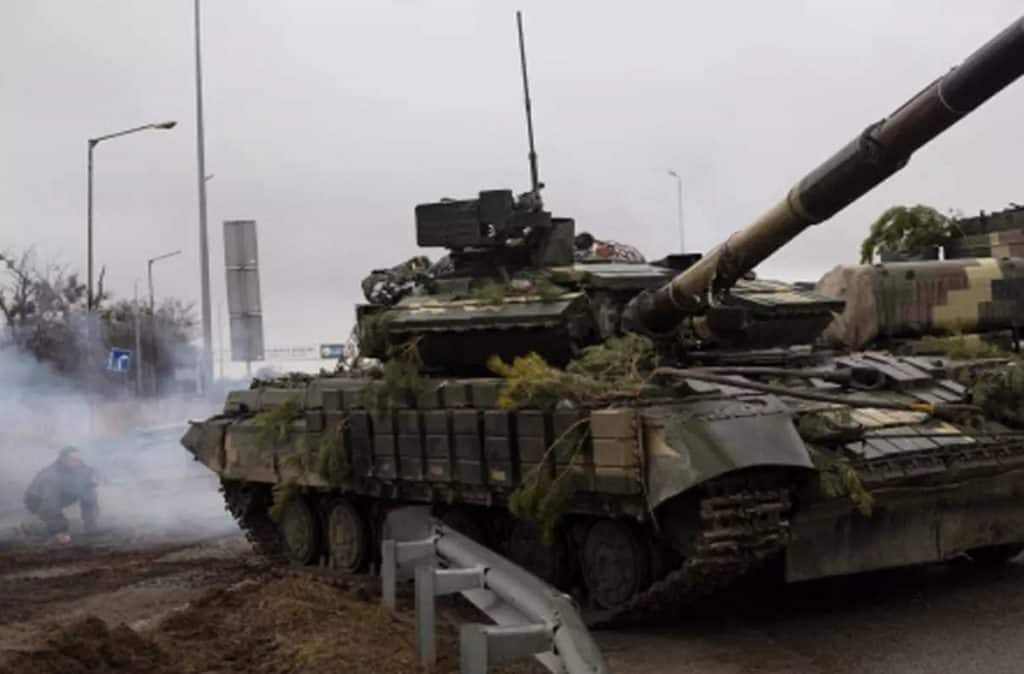By Sheraz Wahid
The international community is witnessing tremendous upheavals, including the recent US withdrawal from Afghanistan and the current Russian invasion of Ukraine.

The US withdrawal from Afghanistan was followed by Russia’s hostile stance against Ukraine. During the withdrawal scenario, Russian preparations to invade Ukraine were classified, but an invasion became imminent as the Russian war council assembled its soldiers along the Ukrainian border.
Is the Russian invasion justified? Taking into account also the position of the United States against Russia in and the Western pressure in other parts of the world.
For Russia, is it a demonstration of its strategic and conventional capabilities in balancing military and strategic power? Is the Russian annexation of territories of Ukraine imminent for its security from any external threat, and does the deployment of offensive instruments guarantee state security? There are several observations:(a) the Russian invasion of Ukraine could be a resurrection of offensive realism, (b) the US-NATO coalition against the Kremlin could produce a Cold War-like scenario, and (c) it could be a case of the West versus the rest of the World.
In its security assurance documents, Moscow had urged Washington to de-escalate tensions “over NATO’s eastward expansion and the alliance’s deployment near Russia’s border” particularly in Ukraine: the US and Russia should not conduct attacks against each other’s territory; neither side should deploy short or medium-range missiles; the US should not open military bases in post-Soviet non-NATO countries that could be used to attack targets on the territory of other countries; and neither side should deploy nuclear weapons abroad.
It can be argued that the US has betrayed its security agreements with Russia by giving military aid to Ukraine and pressuring NATO to do the same. In this developing conflict with Russia, the antagonistic position of the US is more obvious, resulting in a serious diplomatic and security crisis in Europe. Who is to blame for the current crisis? Clearly, the US has taken an aggressive stance towards Russia, helping Ukraine build a strong resistance and pressuring NATO countries to oppose the Kremlin. Russia may see this as a return to Cold War history.
Furthermore, the US President Joe Biden harshly criticized Russia’s aggression against Ukraine. He slapped severe sanctions on the Kremlin while putting its economy in jeopardy. The majority of Russia’s vital assets have been frozen, and the US has warned that Russia will pay a “Serious and dear price.” Biden argues that European leaders are “completely united” on Ukraine, but he admits that there are differences in the support provided with Ukraine by different countries. The United States claims to be giving Ukraine with $200 million worth of weaponry and defense capabilities, including javelin anti-tank missiles, as well as allowing other NATO countries to supply Ukraine with US-made munitions. Clearly, the first backing demonstrates that the United States has been more aggressive toward Russia than at any time during the Cold War. In this kind of union against any country whose integrity and security are challenged, why should it be condemned as an invasion but not a step for security?
Moreover, the Russian invasion “step for security” has been shamed as a result of the White House’s and other nations’ critical views. The international community has also condemned Russia’s invasion and stated that it would not provide diplomatic backing to Russia in order to justify its actions. Furthermore, when it comes to the relations between China and Russia, Beijing has assured that there is no a limit in its relations with Moscow. But despite having similar objectives, China is not prepared to fully support Russian aggression. Although China did not agree with the international community in labelling Russian military activities as an invasion, it abstained in the United Nations Security Council resolution criticizing Russia, leaving Moscow to veto it alone.
Most Recently, Pakistan premier Imran Khan and his important delegations paid an official visit to the Kremlin to discuss bilateral negotiations and exchanged views on current regional topics, including developments in South Asia. Pakistan visits to the Kremlin raised several concerns on how to justify the visit in the imminent scenario of invasion. While Khan expressed his “regrets” over Russian invasion and stated that military intervention must not be the last option, his visit to the Kremlin was perceived as the “West pressurizing Islamabad” to condemn Russian invasion, and to express support for upholding the U.N. Charter, and the founding principles of international law. Moreover, if the Russian invasions should be strongly criticized by the Western world, compelling Islamabad to do the same, why should not the Taliban’s takeover of Afghanistan to be acknowledged as sovereign regime? This implicates that Diplomacy and Democracy are not only a fiction, but also hypocrisy, after analyzing Western political standings.
To sum up, the multilateral world and international organizations have so far been ineffective in resolving disagreements and escalating diplomatic crises. The US and NATO members are leading the way in dragging the rest of the world into a conflict by assisting Ukraine. It is the US and the West that have dragged Ukraine along with false reassuring promises to provide Ukraine with NATO membership. Russia’s security has been called into question. Moreover, this strong assistance to Ukraine is even more perceived by Russia as another instance of the West’s hostility against Russia. On the other hand, Russia has never shied away from criticizing US policy in any form. Although the US seems to be the elephant in the room and Ukraine’s fate is dictated, the international community’s response against any form of escalation, no matter how small, is worth considering in this promised new world order.
Sheraz Wahid is a Research Assistant at Balochistan Think Tank Network (BTTN), BUITEMS, Quetta.
(The views and opinions expressed in this article are only of the authors and do not necessarily reflect the views, opinion or position of World Geostrategic Insights).







